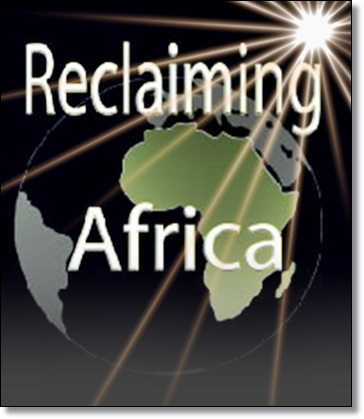African Union Off - Radar as Missiles Rain in Africa

 |
| Africans must reclaim Africa |
Africans watched with embarrassment and shock when AU fumbled over the case of Ivory Coast early this year. Kenya, a member, took advantage of the confusion to throw in the mix its domestic quarrels on the International Criminal Court (ICC). Before the continent could figure out what hit it, Tunisia and Egypt succumbed to citizen pressure to kick out their governments. In Nigerian parlance - the African Union’s “number is not going” (referring to inability to connect to another cell phone).
Buoyed by interests from the BRICS countries (Brazil, Russia, India, China and South Africa), AU momentarily found its voice to overrule Western countries. Rhetoric such as “internal affairs,” “sovereignty” and “African century” gained ground. Instead of AU figuring out the driving force(s) behind the surge of BRICS; it is behaving like a small kid who gains false confidence after years of bullying by simply noticing a “friendlier” fellow approach the arena. The older bully may strike such a lad with even more force to simply prove a point of who is in charge of the arena.
Revisiting Tunisia and Egypt, the world watched in awe as unarmed citizens brought down governments through non violence means. The two countries demonstrated that the governance systems were disconnected from the people - the “numbers were not going.” In Kenya, following one of the most volatile electoral violence in 2007/08 that displaced over 600,000 and killed over 1,200; lack of a credible mechanism to enforce justice has made majority of people to be disconnected from government. Libya, a country whose leader Muammar Gaddafi had propelled the dream of a united Africa by enlisting the support of the largely ignored ethnic chiefs started bombing his people. Gaddafi is quoted on ABC as saying “his people” cannot demonstrate against him; only “alagada” can do that – and he went ahead to bomb them.
In all this, the AU always sides with the “mteja ambaye hapatikani” (the owner of the unreachable cell phone). Emerging economies recognize that ink on permits on mineral concessions with African elites is yet to dry; they opt to shore up AU. Western countries realizing that the international system is changing rapidly decide to hook up with the “people.” When Africans pick up their cell phones to make calls, the West then positions itself as available at the same time as in-country political elites and AU ignore them. By disconnecting themselves from the people, African leaders and AU have handed over the radar to foreigners to steer the continent.
Africa ought to learn that emerging and developed economies pay attention to their citizenry and offer services to their people. Such successful countries invest in the policy of inclusiveness (India’s development trend shot upwards as they abandoned class system and opened the country up to all castes). They also feed their people and enable them exercise innovation and creativity. Emerging economies have also learnt how to play in the international market system (imagine China a communist country, has become a major capitalist player globally). These countries do not invest in churning out empty declarations and resolutions – they work to give power behind their statements.
I express grief at the trend that African governments and AU have adopted – bombing bridges that connect them to the citizenry. AU would do better to safeguard the interests of the African people and not hide behind formality to protect wayward political elites on the continent.
By James Shikwati.
The author is Director of Inter Region Economic Network james@irenkenya.org
